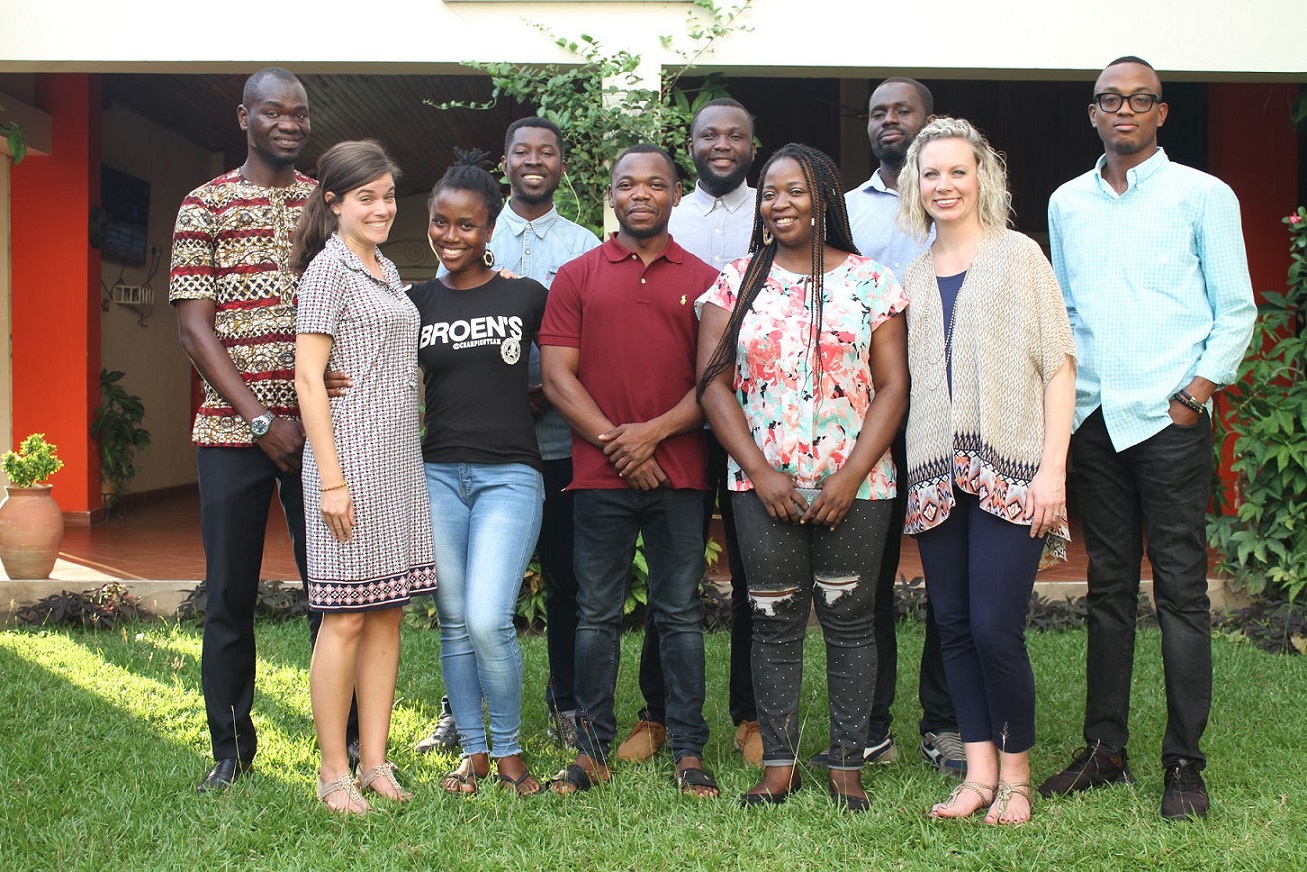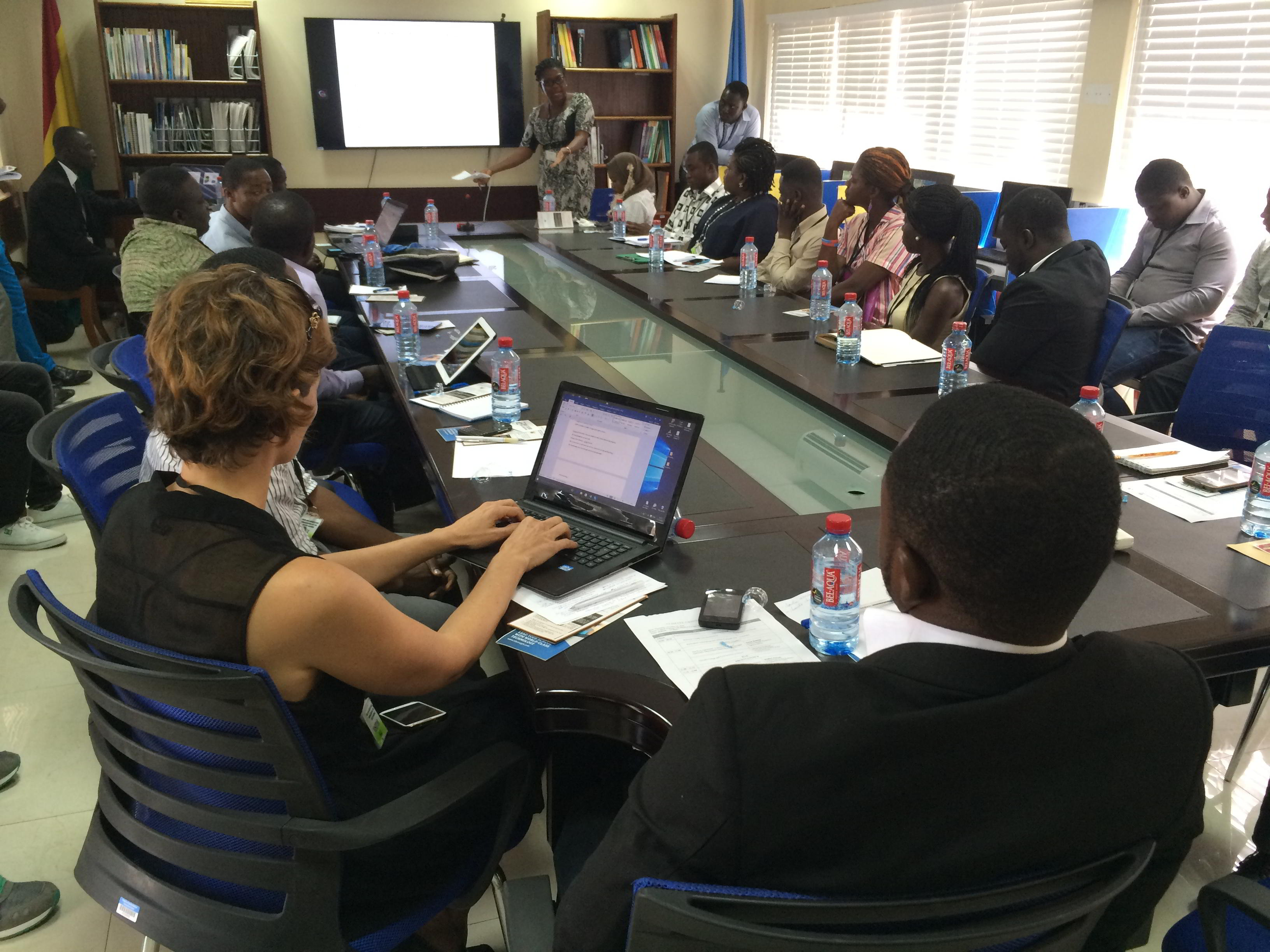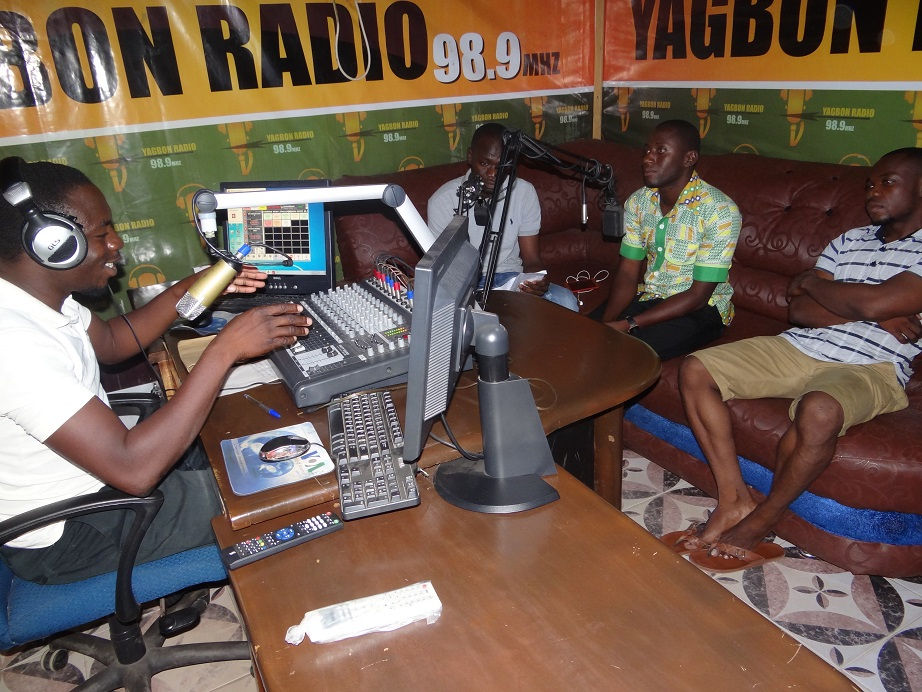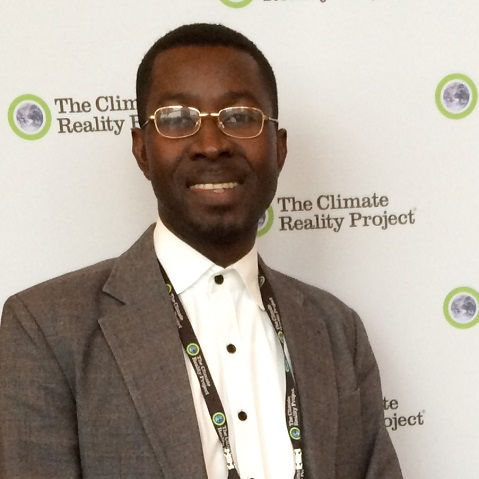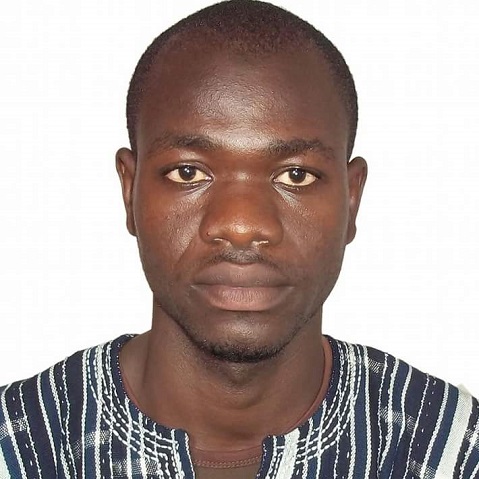Climate change is increasingly affecting everything in Ghana and Africa, and poses a significant threat to our vision of a world of hope and social justice where poverty has been overcome and people live in dignity and security. That is why AiG must do all it can to ensure that all its actions are part of an urgent, effective and equitable response to climate change.
AiG is already very active in helping communities prepare for and adapt to the impacts of climate change, and has produced a range of learning tools based upon its experiences. AiG has also been lobbying governments and decision-makers through targeted advocacy for a number of years. From this work, it’s clear that AiG has a great deal to contribute to the global movement for climate action, namely:
Promoting gender-equitable responses to climate change; particularly approaches that empower women and girls and lead to gender transformative outcomes
Communicating the links between policy choices and action on climate change in Ghana and Africa
Implementing carbon emission reduction and mitigation measures as practical steps to fighting climate change in Ghana and Africa through afforestation, agroforestry practice and climate change education
Generating evidence from practical experience on the ground to feed into programme development and policy analysis and advocacy on climate change
Making links between policy and action through stakeholder collaboration for both local and national stage
Building the capacity of local organizationsin Ghana to do all of the above. AiG has a strong presence in climate vulnerability hotspot in Ghana, where many of the root causes of climate change lie.
AiG believes in promoting sustainable agricultural technologies by working in partnership with national authorities, NGOs, CBOs and target farmer groups in climate vulnerability hotspots in Ghana. Our strategic and sustainable interventions are based on farmers’ knowledge and skills, their innovation based on local conditions and their use of nature’s products and processes to gain better control over the pre-production and production processes involved in agriculture. AiG works with farmers to conserve their resources and their rights. Our farmer tailored programs and protocols always seek to;
To improve the quality of life of farming communities by promoting environmentally safe and sustainable methods that would enhance the quality and quantity of crop/plantations/livestock yields especially in climate sensitive areas.
To enhance the participation of farmers, both women and men, in all processes of problem analysis, technology development, evaluation, adoption and extension leading to food security and self reliance among farmers and rural communities.
To facilitate community access and control over natural resources and to build institutions and coalitions at different levels for strengthening People’s Agriculture Movements, which focus on empowerment of marginalized sections like women and youth
To develop a Sustainable Agriculture Resource Network that promotes sharing of knowledge, material and human resources. To serve as a repository for documenting, collecting, storing, collating and disseminating information/success stories from different sources on sustainable agriculture.
Understand the role of agriculture in contributing to climate change and developing sustainable agriculture practices which can help in mitigating and adapting to climate change.
AiG works with an active local network and community-based environmental groups that can help raise environmental awareness, conduct environmental education, engage in environmental advocacy and serve as a local environmental watchdog. AiG maintains a long-term vision of the advancement of the environment and natural resources in Ghana and Africa within the framework of global efforts to promote environmentally sustainable development. Strategically;
We recognizes that conserving and managing natural resources is essential in the fight against key biological resources and/or species extinction and that the local people heavily dependent on the natural resources and particularly vulnerable indigenous groups.
We are committed to building concrete environmental sustainability solutions through a combination of field-based projects, advocacy, action research, information and knowledge dissemination, education and awareness work
We aim at empowering local people to protect their environment by supporting them to take action and control over access to natural resources through sound long‐term resource management and biodiversity conservation
We Involve local communities, civil society organizations and indigenous peoples in the planning and execution of field programs taking into account their knowledge, skills as well as cultural and socio‐economic needs remain a big priority of AiG.
AiG is committed to helping build stronger indigenous communities as well as developing and supporting projects that alleviate poverty in rural communities by improving the sustainable management of natural resources, increase rural production and productivity and strengthen community groups to help design their own long-term initiatives and strategies.
We are focused on promoting community driven actions and interventions in the field of sustainable community development and poor alleviation by undertaking small and medium scale programs which empower local communities to develop their own solutions to their environmental and development challenges.
We design and implement community cost-effective programs and interventions for indigenous communities in natural resource hotspot that improve household food security and levels of income and health conditions of the local communities;
We organize “people-focused” activities that protect and enhance their local environment, ecosystems and the productivity of natural resources
We are committed to fundraising to support projects that alleviate poverty in rural communities by improving the sustainable management of natural resources, increasing rural production and productivity
One of the core mandates of AiG is to create environmental leadership opportunities and support the development of youth and local capacity in Ghana to respond to environmental issues through environmental education, training activities and the positive spirit of volunteerism.
We work by sharing expertize and strengthening other community-based organizations, NGOs and associations to become more organized and active in addressing environmental leadership issues by facilitating and encouraging collective voice and action, networking, information exchange, research and development initiatives.
AiG assist partners and local communities to have a deeper understanding of what policy analysis, networking and lobbying entail. We help local leaders to develop strategic capacities and new competencies as analysts, reform advocates and change agents.
We equip local groups and communities with skills and capabilities in mobilizing voluntary energy to catalyze system and policy change, monitor policy formulation and implementation and engage effectively in networking and solidarity building.

